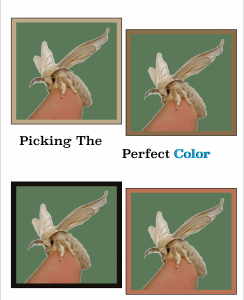History of Marketing into the Digital World
When you walk down the street, how many of you can count with more than one hand of people who are not using their phones? Most likely you can’t count up to five. People’s phones are usually in their hands, pockets, bags; and most likely, their headphones are somewhat connected to it. In this current time period of the Anthropocentric Age, “in the most modern time” as some may refer it to, the world is interlinked with this one technical advance: The Internet. This Internet is so prevalent in our lives, that most of us use it everyday. We receive news, direct messages, entertainment, textbooks, ebooks, the list can go on. We can now even order food with a few clicks at our fingertips! This new tool to communicate ideas and messages have also changed the culture of the economic market; how we sell, promote, and analyze revenue has now widened due to the new digital age. Information is faster, more personalized, and in some cases, more competitive.
The idea of “Marketing” has always been around. According to Ethan Decker in his TEDx video, the idea to promote favorable content is to entice and seduce others, something that is already primitive to the nature of humans. Humans have already been doing this since our first neanderthal cousins. The way Men attract women, and women have attract men are versatile. It is the idea that we use certain techniques to gain attention is the basic idea of Marketing. This idea of enticing others are mating techniques among the animal kingdom. From peacocks to seahorses, all animals have a culture of mating; to somehow show off and entice others to court. This idea has translated from the reproductive sector into the economic growth of business code called: Marketing.
The more traditional ways of how people think of Marketing became prevalent during the Market Revolution. It was the time of a political ease (because there was not a polar separation of parties) and ideological expression. America’s Founding Fathers debated in political ideas, economical ideas, and ideas that would later shape our whole country and world. It was Alexander Hamilton (Federalist) who envisioned an economy based on manufacture and trade, while Thomas Jefferson (Democratic-Republican) supported the individually-sustained based economic structure. Hamilton ultimately won this ideology debate; most of everything we own come from mass manufacturing. But how did we sell these items to the mass majority? The use of Marketing.
First, it was the use of mouth. People communicated with their words; interacting with one another, spreading the word. This was due to the possibility of people around the community, or even people who worked in the factories. Then print came around. Printing of newspapers was a new way of communication. It was a new creation on ways humans connected with others. As printing was still prevalent and in use, the radio became another form of advertisement and marketing tool. Just as the radio, a few decades later, the television became a normal household entertainment throughout America. Finally, it was the computer.
The digital age has made everything more seemingly fast and connected. It is a system of radioactive connections that allow people to connect with one another as if they were next to each other in real time. This face pace habits has also seeped into its way of the current digital marketing principles that are practiced today. Things are faster and more well updated than ever before. It has, in some ways, made humans attentions span more like fishes; but that is another subject and I will digress.
It is because of the new technical age where most things are faster and more convenient for the public. Microwaves heat foods in less than five minutes, versus cooking is twenty minutes. Texting takes two minutes, versus sending a letter would take two weeks. Driving is now more immediate than back in the days where horseback riding was the most popularized form of transportation. These new advances has moved the culture into a fast pace age. This is the new demand; the demand for faster, better improved technologies that’ll have to either catch up, or fall behind.
That is why when you go onto Instagram or Facebook, most ads that catch people’s eye are one’s that are fast, colorful, moving. These aspects of a digital ad are to capture people’s attention. The faster and more colorful they are, the more engaged the view becomes. These are what marketers try to achieve– people’s attention. Without this, they aren’t doing their jobs correctly. Even on television, such as the Old Spice advertisements of the man who is known to say “Look at your man. Now look at me. Now back to your man…” This advertisement technique is used to keep the viewers attention. It is constantly going back and fourth, “to your man, and now back to me.” There are even, in different variations of the commercial, where the man constantly changes his setting, his attire, and his looks (mustache/no mustache). This new approach has transcend into all forms of marketing because of the new culture the Digital Age has formed.
The Digital Age of new technology has transformed it’s self into a new culture, a new way of living. From the olden days of word of mouth, to posters on buildings, and to radio advertisements, the main goals were to always capture the attention of the people. Now as we can connect to others as fast as a click of a few buttons, the marketing principles have also paid to those demands of on-the-spot information, resource, and readiness.




